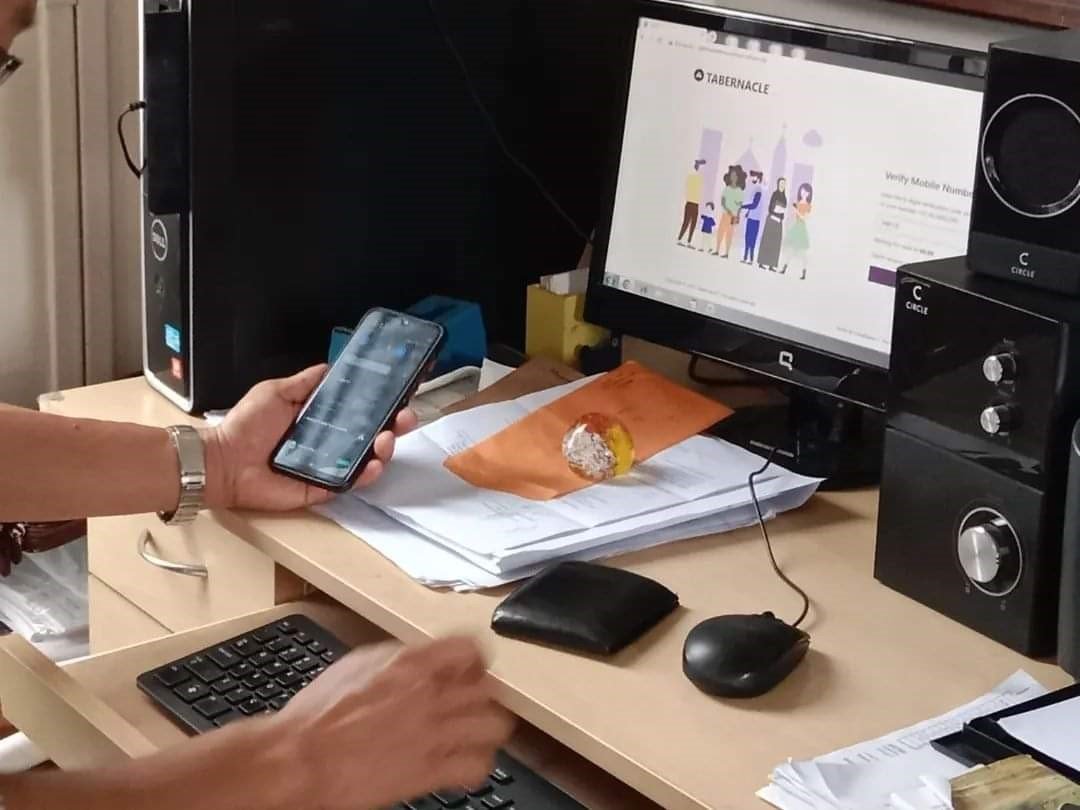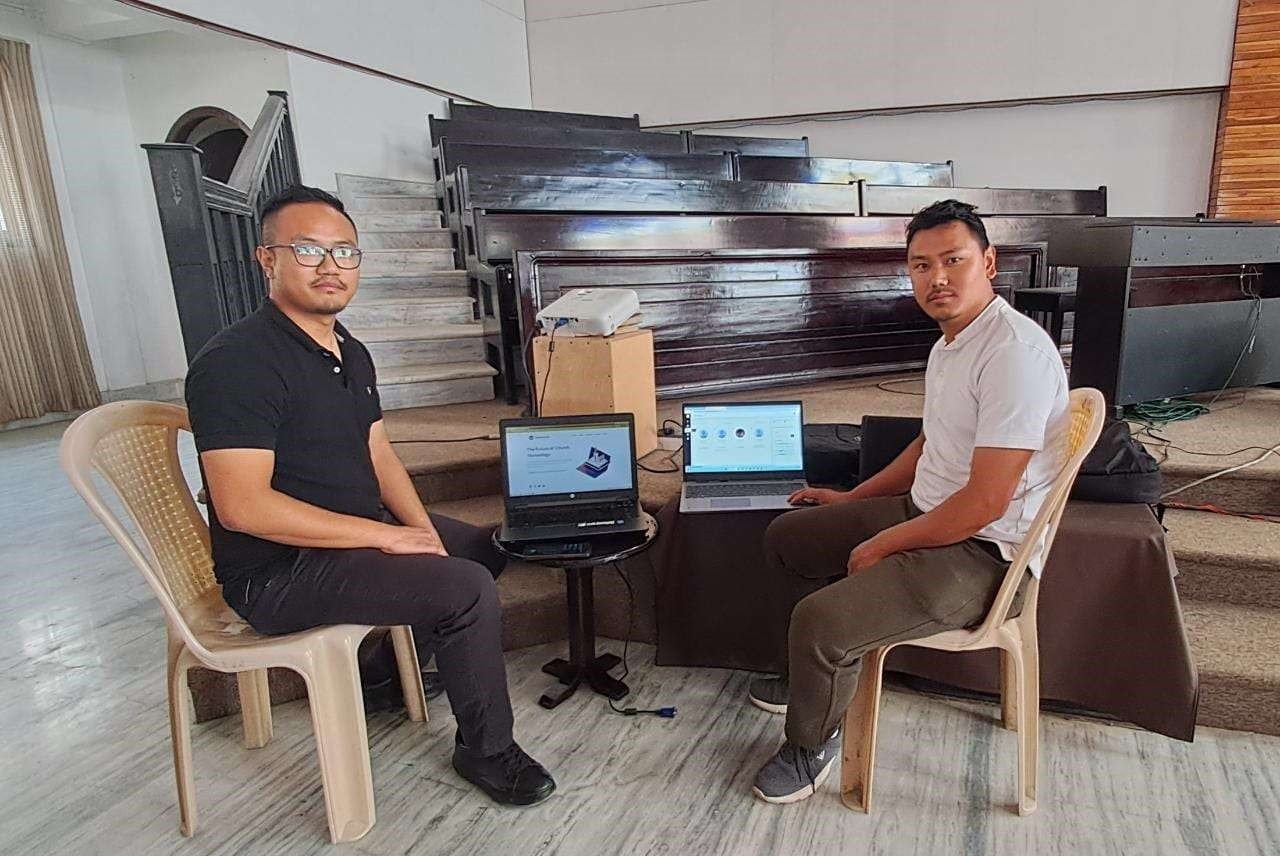Tabernacle is a Church Management SaaS (Software as a Service) providing a cloud- based easy-to-use software to modernize Church Management. Designed with churches at the forefront of the development process, Tabernacle combines innovative technology and the needs expressed by local churches to develop a comprehensive, robust and user-friendly cloud-based church management and accounting software.
Founded by Atoba Longkumer and Vituonuo Suohu, Tabernacle was conceptualized following observations and deducing two major gaps: outdated inefficient methods of management and the unavailability of software in the market to cater to Indian churches’ specific requirements.
“The churches were using outdated, inefficient methods for managing their operations, often relying on paper records. Finances were maintained in traditional registers, cumbersome spreadsheets and churches using inefficient accounting practices.
Secondly, we found a gap where the business software available in the market was not able to serve the particular needs of the church. There were instances where church admins would take ‘tally’ course to try and implement the software in the church but it could not serve well,” says Atoba Longkumer, Co-founder of Tabernacle, in an interview with Nagaland Tribune.
Designed to simplify and enhance church management, some of the key aspects of Tabernacle are :
- Manage finances: Allows churches to easily plan yearly budgets, record and track expenses, receipts and generate financial reports.
- Manage member data: Add, update and record detailed information on every church member.
- Schedule events: Create and schedule events for various church activities including marriages, youth events, bible studies and more
- Online giving: Receive donations securely through online giving platforms allowing members to contribute conveniently from any device
- Comprehensive data analytics and reporting: Analyze the demographic data, assess financial performance and monitor several other trends to aid the decision – making of the church.
“We were driven by that relentless passion for innovation, aspiring to create a global product based out of Nagaland. Witnessing numerous local organizations falling victim to substandard software solutions from out-of-state firms at inflated prices fuelled our determination. We wanted to build something to set the benchmark of a quality software product to solve a real-world problem,” shares Longkumer. This aspiration for better technology led the founders to leave their full time jobs consulting for the Government of Nagaland to pursue the entrepreneurial dream and start Tabernacle.

The term Tabernacle holds significance in Christianity. Referring to the place of worship in the Old Testament, Longkumer maintains that before the Israelites worshiped God in the temple, they had a mobile worship centre known as the Tabernacle, established during the time of Moses as they moved out from Egypt and wandered in the desert for 40 years before entering the promised land.
“The Tabernacle was a portable church and housed important religious artefacts and resources necessary for worship. ;/We named our church management software “Tabernacle” because it plays a crucial role in church management today. Just like the ancient tabernacle, it is a portable church office, allowing pastors and their teams to manage their church anytime, anywhere and from any device,” Longkumer mentions.

Photo: Tabernacle digitising Church records
Download Nagaland Tribune app on Google Play

The software provides tools for managing memberships, finances, events and many more services. Through Tabernacle, the founders aims to ensure that the modern church can operate efficiently and effectively, much like the Israelites were able to worship and stay connected with God throughout their journey.
Speaking on the advantages and challenges of technology start ups in Nagaland, Longkumer views that the advantages for start ups includes lower costs such as the overhead cost of office space, labour and other utilities are cheaper; better quality of life; pleasant weather and less pollution; opportunity to build from home; being closer to family and contributing to local economic development.
On the challenges, Longkumer draws attention to the limited digital infrastructure and poor physical infrastructure. “Unfortunately the state still lacks reliable digital infrastructure – electricity and internet connectivity. We have to rely a lot on inverters and power backups. The roads and connectivity to other towns are poor and there are limited transportation facilities. Initially, outbound marketing required several in-person visits,” expresses Longkumer.
With the start up community still in its nascent stage in Nagaland, Longkumer opines that the start-up community is small, impacting the peer to peer learning. “There is absence of investor’s network like VCs and Angel investors which are crucial for start-up funding and growth,” says Longkumer. The Workforce is also another challenge, as it is rare to find software engineers, developers, UX/UI designers, business, folks, marketing experts and other talents crucial to building a start up.

However, Longkumer is optimistic about the future start ups in Nagaland. “We are in the right track but we also need to move faster. We need stronger policies and better funding to create the ecosystem. Nagaland needs to focus on building talent as it build start ups”.
Check more about Tabernacle:

